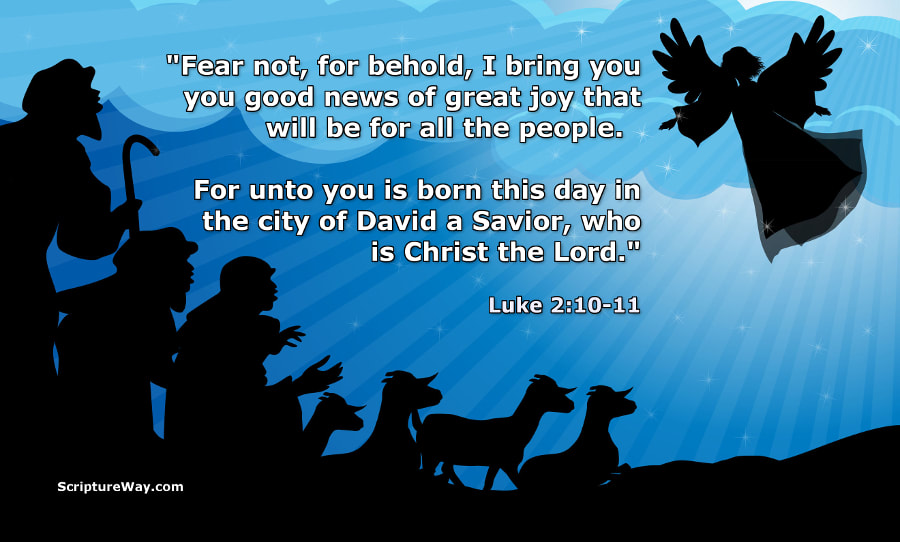"Let us therefore come boldly to the throne of grace, that we may obtain mercy and find grace to help in time of need." (Hebrews 4:16 NKJV)
Consider. In what area of your life do you need God's mercy and grace to help you with temptation, weakness, or a "storm" that you are going through?
The scripture references below are from the New King James Version (NKJV) unless noted otherwise (Ref. 1).
1. Come boldly to the throne of gracea. Come boldly
In the first part of Hebrews 4:16, the author of states, "Let us therefore come boldly to the throne of grace." "Come" means draw near or approach (Ref. 2). "Boldly" means with confidence (Ref. 3). The "therefore" at the beginning of the verse points to two reasons why we can draw near with confidence to God:
(1). Jesus, as our high priest, has opened the way for us to God's presence in heaven (Hebrews 4:14, 9:24, 10:19 NLT). Recall that when Jesus died, the veil of the temple separating people from God was torn in two (Mark 15:37-38). (2). Jesus, more so than any other, understands our weaknesses and temptations. Jesus, was in all points tempted as we are, yet without sin (Hebrews 4:15). Because Jesus Christ has paid with his life the atonement for our sins once and for all time, we can come to God boldly, with confidence (Hebrews 9:11-12 NASB). We come not trusting in our ourselves but in the merits of our Lord and Savior, Jesus Christ. b. To the throne of grace
Let us rejoice that there "is" a throne of grace and not of "justice" only (Ref. 4). The Greek word for "throne" literally means a (king's) seat, and metaphorically refers to God in heaven (Ref. 5). "Grace" is God's favor towards us. God freely gives us his grace because God is inclined to bless us (Ref. 6).
Because Jesus now is at the right hand of God's throne, the throne of God has become the throne of grace (Hebrews 8:1, 12:2). From generation to generation, from every land, and in every language, God may be approached. In all times of our weaknesses and temptation, we may be assured that he is on that throne (Ref. 4). At any time, 24/7, we may approach God with confidence to receive mercy and find grace to help us in our time of need. 2. Receive mercy and find grace to help in time of needa. Mercy
At God's throne of grace, we receive mercy (Hebrews 4:16 ESV). Mercy is God's compassion towards us in our sin-full and hurt-full condition (Ref. 7). In the same way that Jesus had compassion on and touched and healed the leper and forgave the paralytic, God reaches out in mercy and compassion and touches us where we hurt and need healing and forgiveness (Mark 1:40-42, 2:1-5). By God's mercy he offers us salvation in Christ (Titus 3:4-5 ESV). By God's love and mercy, even when we were dead in our trespasses, God "made us alive together with Christ" (Ephesians 2:4-5).
b. Grace
At God's throne of grace, we find grace. Grace is God's favor towards us (Ref. 6). Grace is a blessing and a free gift. Grace is totally undeserved. By God's grace, Jesus forgave the men who nailed him to the cross (Luke 23:33-34). By God's grace, the Apostle Paul found the sufficiency of God's power to help him in his weakness (2 Corinthians 12:7-9). By God's grace, even though we are saved already through faith in Christ, God helps us when we are going through a tough time such as a loss, temptation, persecution, or poor health. By God's grace, God has given us the gifts of salvation and eternal life (Ephesians 2:8-9, Romans 6:23).
c. Help
At God's throne of grace, we receive mercy and find grace to help us in time of need (Hebrews 4:16). The Greek word translated as "help" [boétheia] in this verse occurs only twice in the New Testament -- in Hebrews 4:16 and Acts 27:17 (KJV) -- and has a nautical meaning (Ref. 8).
Recall that in Acts 27:14-17 the Apostle Paul was traveling to Rome on a ship that was caught in a severe storm. The sailors were losing control of the ship and feared running aground. In Acts 27:17 (read in KJV) the sailors wrapped supporting ropes or cables called "helps" [boétheia] around the wooden hull of their ship from stem to stern to hold the planks of the ship tightly together during the storm (Ref. 8, Ref.9). In the same way the ancient mariners used "helps" to wrap around, undergird, and support their vessels in storms, God provides his help to support us and hold us together when we are going through the storms of life. d. Timeliness
God's mercy and grace always are available to help us at the time we need (Ref. 10). This is encouraging news indeed. When we have trials and temptations, we can come boldly to God's throne to receive mercy and find grace to help us at any time. As author Dillon Burroughs has correctly concluded, "God is never late and rarely early. He is always exactly right on time -- His time" (Ref. 11).
Listen
Listen, watch, and sing along in your heart with this video of Alan Jackson singing, "What a Friend We Have in Jesus." Note the words, "Jesus knows our every weakness; take it to the Lord in prayer!" (Ref. 12).
Prayer. Dear Jesus, thank you that by your sacrifice for us, we can boldly approach you. Thank you for understanding our trials and temptations. We need your mercy and grace. In your graciousness, forgive our sins and fill us with your presence. Strengthen us, support us, and surround us with your grace so we with your help will be victorious over sin and will come safely through the storms we are experiencing. We give you all the praise, glory, and honor. In your precious name we pray. Amen.
Related Lessons
"The Meaning of God’s Favor" -- Psalm 30:5 "Made Alive Together with Christ - A New Quality of Life" -- Ephesians 2:4-5
References
1. https://www.biblegateway.com/passage/?search=Hebrews+4%3A16&version=NKJV 2. https://biblehub.com/greek/4334.htm 3. https://biblehub.com/greek/3954.htm 4. https://biblehub.com/commentaries/barnes/hebrews/4.htm Barnes Notes on the Bible - Commentary on Hebrews 4:16 5. https://biblehub.com/greek/2362.htm 6. https://biblehub.com/greek/5485.htm 7. https://biblehub.com/greek/1656.htm 8. https://biblehub.com/greek/996.htm 9. https://biblehub.com/commentaries/ellicott/acts/27.htm Ellicott's Commentary for English Readers - Acts 27:17 10. https://biblehub.com/greek/2121.htm 11. https://www.goodreads.com/quotes/789710-god-is-never-late-and-rarely-early-he-is-always 12. https://hymnary.org/text/what_a_friend_we_have_in_jesus_all_our_s
0 Comments
Image by RÜŞTÜ BOZKUŞ from Pixabay
"For His anger is but for a moment, His favor is for a lifetime; Weeping may last for the night, But a shout of joy comes in the morning." (Psalm 30:5)
Consider. Do you understand the meaning of God's favor?
This lesson explains the two meanings of God's favor in the Old Testament and the meaning of God's favor in the New Testament.
The Scripture references below are from the New American Standard Bible (NASB) (Ref. 1) unless noted otherwise.
1. God's Favor is Grace (First Meaning in the Old Testament)
The Bible often speaks about God's servants finding God's favor. "Noah found favor [Hebrew word chen - Ref. 2] in the eyes of the Lord" (Genesis 6:8, brackets added). Abraham, Moses, and Gideon found favor with the Lord, and the Lord granted their requests (Genesis 18:3, Exodus 33:12-17, Judges 6:17). When David and his servants fled Jerusalem because of Absalom's conspiracy, David, the king, said to Zadok, "Return the ark of God to the city. If I find favor in the sight of the Lord, then He will bring me back and show me both it and His habitation" (2 Samuel 15:25).
In the Old Testament verses above, the Hebrew word for favor is chen, which means grace (Ref. 2). So, in the Old Testament, the first definition of God's favor is God's grace. When God's servants found God's favor, they found God's grace.
2. God's Favor is Acceptance and Delight (Second Meaning in the Old Testament)
The Old Testament Hebrew has a second word, ratson, that the NASB and King James Version (KJV) translate as favor, delight, acceptable, or acceptance (Ref. 3). The following verses provide us additional insights into God's favor. These verses teach us that God's favor and delight are available to God's people.
a. God's favor is durable, lasting a lifetime and beyond - Psalm 30:4-5
b. God's favor surrounds the righteous as a shield - Psalm 5:12 c. Those who seek wisdom find life and obtain favor from the Lord - Proverbs 8:35 d. A good person will obtain favor from the Lord - Proverbs 12:2 e. People who deal faithfully are God's delight - Proverbs 12:22 f. The prayer of the upright is God's delight - Proverbs 15:8 g. When people are obedient to God, God makes them joyful in his house of prayer, and their offerings and sacrifices are acceptable to God (Isaiah 56:6-7) h. God's Servant will proclaim the favorable (acceptable in the KJV) year of the Lord (Isaiah 61:2 NASB, Isaiah 61:2 KJV). Luke 4:14-21 describes the Sabbath day when Jesus quoted this Scripture. Jesus said, "Today this Scripture has been fulfilled in your hearing” (Luke 4:21). 3. God's Favor is Grace and Kindness (Meaning in the New Testament)
In the New Testament, the meaning of God's favor is grace and kindness (Ref. 4). This meaning of God's favor in the New Testament closely aligns with the "grace" definition of God's favor in the Old Testament (section 1 above).
Luke chapter 1 provides the first New Testament mention of a person finding favor with God (Luke 1:30). Luke 1:26-27 tells us that God sent the angel Gabriel to Mary. When Gabriel greeted her, he said, "Greetings, favored one! The Lord is with you" (Luke 1:28). Mary was "very perplexed at this statement, and was pondering what kind of greeting this was" (Luke 1:29). Then, the angel said to her, "Do not be afraid, Mary, for you have found favor with God" (Luke 1:30).
In Luke 1:30 the Greek word for favor is charis, which means grace and kindness (Ref. 4). According to Thayer's Greek Lexicon, charis "is used of the kindness of a master toward his inferiors or servants, and so especially of God toward men" (Ref. 4).
Mary did not earn God's favor through her works. Mary was highly favored because she was receptive to God's grace (HELPS Word-studies, Ref. 5). Through her faith and trust in God, Mary believed that God would accomplish through her what God had promised (Luke 1:31-38). Luke 2:52 also mentions God's favor. "And Jesus grew in wisdom and stature, and in favor with God and man" (Luke 2:52 NIV).
God's favor (grace, kindness) is not something we can earn through our own efforts. As a result of Christ's sacrifice for us, we now receive God's favor (grace) through faith in Christ as God's Son. The Apostle Paul teaches, "For by grace [Greek charis] you have been saved through faith; and this is not of yourselves, it is the gift of God; 9 not a result of works, so that no one may boast" (Ephesians 2:8-9, brackets added).
Prayer. Thank you, God, for your favor. Thank you for accepting us and blessing us each day with your kindness not based on our own merits but on the merits of your Son, Jesus Christ, our Savior and Lord. Amen.
"In him we have redemption through his blood, the forgiveness of our trespasses, according to the riches of his grace ..." (Ephesians 1:7)
This lesson explains the biblical definition of redemption, that Jesus Christ has paid the price for our redemption, and that our redemption is a free gift from God.
Consider. Think for a moment. How would you define redemption in your own words? How would you explain your redemption through Christ to an inquisitive unbeliever or a new Christian?
1. Redemption is the action of buying back or repurchasing what was previously forfeited or lost.
The transliteration of the Greek word for redemption in Ephesians 1:7 is apolutrosis (ap-ol-oo'-tro-sis) (Ref. 1). HELPS Word-studies states that apolutrosis (redemption) literally means buying back from, repurchasing what was previously forfeited (or lost) (Ref. 1). Jesus said, "For the Son of Man came to seek and to save the lost" (Luke 19:10).
In the New Testament, the primary idea in redemption is deliverance from bondage, specifically the bondage of sin (John 8:34-36, Ref. 2). "Into that bondage man has plunged himself; God’s mercy redeems him from it at an unspeakable price" (John 3:16, 1 Peter 1:17-19, Ref. 2). 2. Redemption is effected by the payment of ransom. Jesus Christ has paid the ransom price -- his blood -- for our redemption.
The Strong's Concordance definition of apolutrosis (redemption) is a release effected by payment of ransom (Ref. 1). The transliteration of the Greek word for ransom is lutron (loo'-tron), which literally is the ransom money (price) to free a slave (Ref. 3, HELPS Word-studies). Jesus Christ has paid the lutron, the ultimate "liberty price" -- the blood of Christ -- to purchase (ransom) believers, freeing them (us) from all slavery (bondage) to sin (Ref. 3). Jesus said, "For even the Son of Man came not to be served but to serve, and to give his life as a ransom for many" (Mark 10:45).
Consider these cross references: 1 Peter 1:18-19 -- "Know that you were redeemed from your empty way of life inherited from the fathers, not with perishable things like silver or gold, 19 but with the precious blood of Christ, like that of a lamb without defect or blemish." Hebrews 9:11-12 -- "But when Christ appeared as a high priest of the good things having come, He entered through the greater and more perfect tabernacle, not made by hands, that is, not of this creation; 12 and not through the blood of goats and calves, but through His own blood, He entered the holy place once for all time, having obtained eternal redemption." 3. According to Ephesians 1:7, we (believers in Christ) have redemption through the blood of Christ and the forgiveness of our trespasses according to the riches of God's grace.
Strong's Concordance defines grace as a gift or blessing brought to man by Jesus Christ (Ref. 4). Thus, our redemption by Jesus Christ is a free gift from God to us, believers in Christ, according to the riches [abundance] of God's grace (Ephesians 1:7, Ref. 5).
Even though God's grace-full gift of redemption to us was free, that free gift of redemption was immensely costly to God (John 3:16, 1 Peter 1:18-19). Summary - the Main Principles in this Lesson:
1. Redemption is the action of buying back or repurchasing what was previously forfeited or lost.
2. Redemption is effected by payment of ransom. Jesus Christ has paid the ransom price -- his blood -- for our redemption. 3. We (believers in Christ) have redemption through the precious blood of Christ and the forgiveness of our trespasses according to the riches of God's grace. Redemption is a free gift from God to us. 4. Although our redemption by God is a free gift from God to us, that free gift was immensely costly to God -- it cost the precious blood of God's only Son, Jesus Christ.
Apply. How will you purpose to live today and each day in light of your redemption by Jesus Christ, God's Son? Give thanks for God's gracious gift of redemption.
"And the angel said to them, 'Fear not, for behold, I bring you good news of great joy that will be for all the people. For unto you is born this day in the city of David a Savior, who is Christ the Lord.'" (Luke 2:10-11)
This article is the third in a series on the "'Fear Nots' of the Bible" (Ref. 1, Ref. 2). This article presents the "Fear not" angelic encounters with Zacharias, Mary, and the shepherds in Luke chapters 1 and 2.
Consider. Do you regard the announcement of the birth of Jesus as good news? If so, are you telling others? Are you rejoicing because you know Jesus as your Savior?
Introduction
Angels are active in both the Old Testament and New Testament scriptures. Angels bring announcements and special messages of encouragement from God to specific people.
In the New Testament, the Greek word for angel is aggelos. Aggelos means a messenger or delegate, someone sent by God to proclaim His message (Ref. 3). Matthew chapter 1 describes the first appearance of an angel in the New Testament. An angel of the Lord appears to Joseph in a dream, saying, "Joseph, thou son of David, fear not to take unto thee Mary thy wife: for that which is conceived in her is of the Holy Spirit" (Matthew 1:20). Supernatural angelic appearances to humans in the scriptures often, but not always, begin with "Fear not," also translated as "Do not fear" or "Do not be afraid" (Ref. 1, Ref. 2). The Angel Gabriel Appears to Zacharias
Luke 1:5-25 tells us about the angel Gabriel's appearance to the priest Zacharias and the angel's message foretelling the birth of John the Baptist.
When Gabriel appears to Zacharias in the temple, Zacharias is troubled and fearful (Luke 1:12). In Luke 1:13 NKJV, the angel's message to Zacharias has four main points: 1) "Do not be afraid" ("Fear not" in the KJV), 2) "Your prayer is heard," 3) "Your wife Elizabeth will bear you a son" and 4) "You shall call his name John." Gabriel tells Zacharias that John will be great in the sight of the Lord (Luke 1:15), will be filled with the Holy Spirit (Luke 1:15), will turn back many children of Israel to the Lord (Luke 1:16), and will go before the Lord (Luke 1:17). The angel Gabriel tells Zacharias that this message is good news, also translated as glad tidings (Luke 1:19 NASB, Luke 1:19 NKJV). The Greek word for good news and glad tidings is euaggelizó (Ref. 4). We will see the same word again in Luke 2:10. Scripture tells us that Zacharias and Elizabeth were righteous and blameless in following the Lord's commandments (Luke 1:5-6). However, Zacharias does not believe (have faith in, trust in) the angel's "good news" message (Luke 1:20, Ref. 5). Disbelief in God's message has consequences. Zacharias is not able to speak until the prophecy is fulfilled when John is born (Luke 1:57, 63). When his mouth is opened, Zacharias speaks and praises God (Luke 1:64). The Angel Gabriel Appears to Mary
Gabriel greets Mary with the words, "Rejoice, highly favored one, the Lord is with you; blessed are you among women!" (Luke 1:28) The Greek word for favored is charitoó, which means highly-favored because receptive to God's grace (Ref. 7).
The Scripture says, "Mary was greatly troubled at his words and wondered what kind of greeting this might be" (Luke 1:29). Unlike Zacharias (Luke 1:12), Mary was not terrified by the angel's appearance or presence. However, she was perplexed by what the angel meant by his greeting. The angel responds and tells her, "Fear not, Mary: for thou hast favour with God"(Luke 1:30 KJV).
Gabriel then states the substance of his message to Mary. "And behold, you will conceive in your womb and bring forth a Son, and shall call His name Jesus. He will be great, and will be called the Son of the Highest; and the Lord God will give Him the throne of His father David. And He will reign over the house of Jacob forever, and of His kingdom there will be no end" (Luke 1:31-33). Then Mary asks Gabriel a very interesting question - "How can this be, since I do not know a man?" (Luke 1:34) The Greek word for know in this verse is ginóskó, which means know through personal experience and in this context refers to sexual intimacy (Ref. 8). Mary did not doubt the angel's word. From her humility and modesty she wondered how her pregnancy could be effected in her virgin state (Ref. 9). The angel Gabriel replies and says, "The Holy Spirit will come upon you, and the power of the Highest will overshadow you; therefore, also, that Holy One who is to be born will be called the Son of God" (Luke 1:35). Gabriel also says, "For with God nothing will be impossible" (Luke 1:37). Mary then humbly speaks her assent and consent to the will of God. "Behold the maidservant of the Lord! Let it be to me according to your word" (Luke 1:38). The Greek word for Let it be is ginomai, which means come into being, happen, and become (Ref. 10). The angel then departs, having accomplished what he came for (Luke 1:38). The Angel Announces the Savior's Birth to the Shepherds “Fear not, for behold, I bring you good news of great joy that will be for all the people” (Luke 2:10) - LUMO Project - Used by Permission “Fear not, for behold, I bring you good news of great joy that will be for all the people” (Luke 2:10) - LUMO Project - Used by Permission
In Luke 2:8-14 the gospel writer describes the glorious announcement of the birth of the Savior. Previously, Luke had described the Angel Gabriel's message to Mary about the conception of Jesus, the Son of God (Luke 1:26-38). In the verses immediately before the angel's announcement to the shepherds (Luke 2:1-7), the gospel account informs us that Joseph and Mary had traveled from Nazareth to Bethlehem, and that her Son now was born.
The Scripture tells us that an angel (name not identified) suddenly stands before shepherds who were outside Bethlehem at night (Luke 2:8-9). The scripture states "And the glory of the Lord shone around them" (Luke 2:9, italics added). The brilliant glory of the Lord around the shepherds during the angel's announcement is unique compared to the appearance of Gabriel to Zacharias in Luke 1:8-25 and to Mary in Luke 1:26-38. The Apostle Paul reports a similar encounter with bright light around himself and his traveling companions on the way to Damascus (Acts 26:13).
The shepherds "feared with a great fear" at the angel's sudden appearance (Luke 2:9 DRA). The King James Version famously says "they were sore afraid" (Luke 2:9 KJV).
The angel tells the shepherds, "Fear not" (Luke 2:10). Yes, the appearance of the angel was supernatural; however, the angel's message about the birth of Christ is good news, not bad news. "For behold, I bring you good news of great joy that will be for all the people. For unto you is born this day in the city of David a Savior, who is Christ the Lord" (Luke 2:10-11). The Greek verb for bring good news is euaggelizó which also is translated as bring good tidings (Ref. 4).
The Greek word for Savior in Luke 2:11 is sótér, which means savior, deliverer, preserver (Strong's Concordance, Ref. 11). Jesus Christ is our Savior because he "saves believers from their sins and delivers them into His safety" (HELPS Word-studies, Ref. 11, 1 John 4:14, 1 Timothy 1:15, Luke 19:10).
The shepherds considered the angel's message, and then they went with haste, without delay to see the Savior themselves (Luke 2:15-16). After they had seen Jesus, they told others the good news about Jesus (Luke 2:17). Then the shepherds returned, "glorifying and praising God for all they had heard and seen" (Luke 2:20).
Apply. Like the shepherds, have you accepted the good news of the Savior for yourself? If not, then believe that he is the Son of God as described in the scriptures, and ask him to forgive your sins. Then go on your way rejoicing and tell others the good news about Jesus.
References
1. http://www.scriptureway.com/home/fear-nots-of-the-old-testament 2. http://www.scriptureway.com/home/fear-nots-of-jesus 3. https://biblehub.com/greek/32.htm 4. https://biblehub.com/greek/2097.htm 5. https://biblehub.com/greek/4100.htm 6. https://biblehub.com/greek/3933.htm 7. https://biblehub.com/greek/5487.htm 8. https://biblehub.com/greek/1097.htm 9. https://biblehub.com/commentaries/benson/luke/1.htm 10. https://biblehub.com/greek/1096.htm 11. https://biblehub.com/greek/4990.htm |
Daily Bible Verse(Click the link above) AuthorMr. Whitney V. Myers. Christian. For more information, please visit the Author Page. Posting ScheduleI plan to provide new postings about once a month. Planned Topics(subject to change) Recent Posts(most recent three months) Popular Posts(top 10) Categories
All
Archives
July 2024
|
|
Copyright 2018-2024 Whitney V. Myers |
Listed in Feedspot's Top 100 Bible Study Blogs and Websites |





 RSS Feed
RSS Feed
